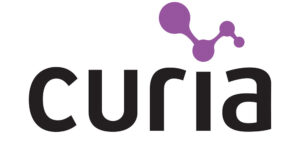Sponsored content brought to you by
In recent years, the life sciences industry has undergone significant transformations, driven largely by the COVID-19 pandemic. The U.S. government’s push for increased domestic production by biotech and pharmaceutical companies aimed to secure the drug supply chain and reduce dependence on foreign entities, ensuring timely access to medications for patients. However, this endeavor poses challenges in terms of cost and time for U.S. manufacturers, making ongoing innovation and favorable funding essential for success.
Funding Challenges
During the pandemic, funding for non-COVID-19 drug studies was scarce. Nevertheless, there are positive indications in Q1 of 2024 that funding for early-phase studies is stabilizing, particularly for biologics and small molecules. The rise in Phase I studies underscores the importance of economical manufacturing across all scales, including small-scale production for orphan drugs and rare diseases. This is particularly relevant as regulators tighten restrictions around keeping production in the U.S. Drug companies certainly face cost pressures, and production in the U.S. must make financial sense for it to be espoused. Continuous flow technology emerged as a winning solution, offering significant cost, quality, and safety benefits.
Continuous Flow Technology
Curia has over 25 years of experience in continuous flow, which has gained traction due to heightened market interest. This technology, spanning from discovery to manufacturing, offers speed and increased efficiency, with automated controls ensuring quality at each production stage. Early detection and removal of defective product translates to enhanced quality, reduced waste, energy savings, and lower production costs. Diligent monitoring also simplifies regulatory compliance.
Additionally, continuous flow is more economically feasible than batch processing for orphan drugs and those with narrow profit margins. The technology provides process safety information for achieving safer operations and is amenable to extreme temperatures and pressures, as well as hazardous reagents. These advantages prompted Curia to adopt continuous flow chemistry for both small molecules and mRNA manufacturing to speed higher quality, life-improving therapies to patients.
mRNA Opportunities and Challenges
mRNA, another recent innovation, offers a wealth of advantages for both patients and manufacturers. Compared to small molecules, mRNA-based production presents numerous advantages over traditional methods, including simplified manufacturing and enhanced safety for patients. The volume of material required is much less than a small molecule or antibody, and the chemistry is significantly less toxic than DNA therapeutics. Despite its promise, mRNA production requires expertise, especially in template development and purification. Fortunately, Curia is only adding to its already wealth of mRNA experience, by investing in R&D to address known challenges and actively pursuing partnerships to advance mRNA technology. To help advance mRNA technology and other matters of medical interest, Curia is engaging in several private and public partnerships.
Collaborations and Partnerships
We are pleased to be partnering with a university on continuous flow processing for mRNA production to accelerate its timelines. We also have a collaboration with Corning to advance continuous flow chemistry for targeted development and commercial-scale manufacturing of APIs and intermediates. Government collaborations further our mission to advance drug research and development, leveraging our expertise across therapeutic areas. These collaborations underscore our commitment to improving patient outcomes.
Artificial Intelligence
Emerging technologies such as artificial intelligence will also have a positive impact on patients, as they are poised to revolutionize drug discovery and development and manufacturing, reducing timelines and enhancing quality. AI’s predictive capabilities, combined with human expertise, hold tremendous potential for expediting drug development and improving patient care.
A Personal Note
As a part of Curia, I take pride in our patient-centric approach to innovation. Our dedication to improving patient lives remains unwavering, driving us to push the boundaries of pharmaceutical research and development.
By embracing innovation, fostering partnerships, and prioritizing patient needs, Curia is poised to shape the future of the pharmaceutical industry, delivering impactful solutions to global healthcare challenges.
 Learn more about Curia. Connect with our experts. https://ter.li/p0ku83
Learn more about Curia. Connect with our experts. https://ter.li/p0ku83
Christopher Conway is R&D President at Curia Global.



